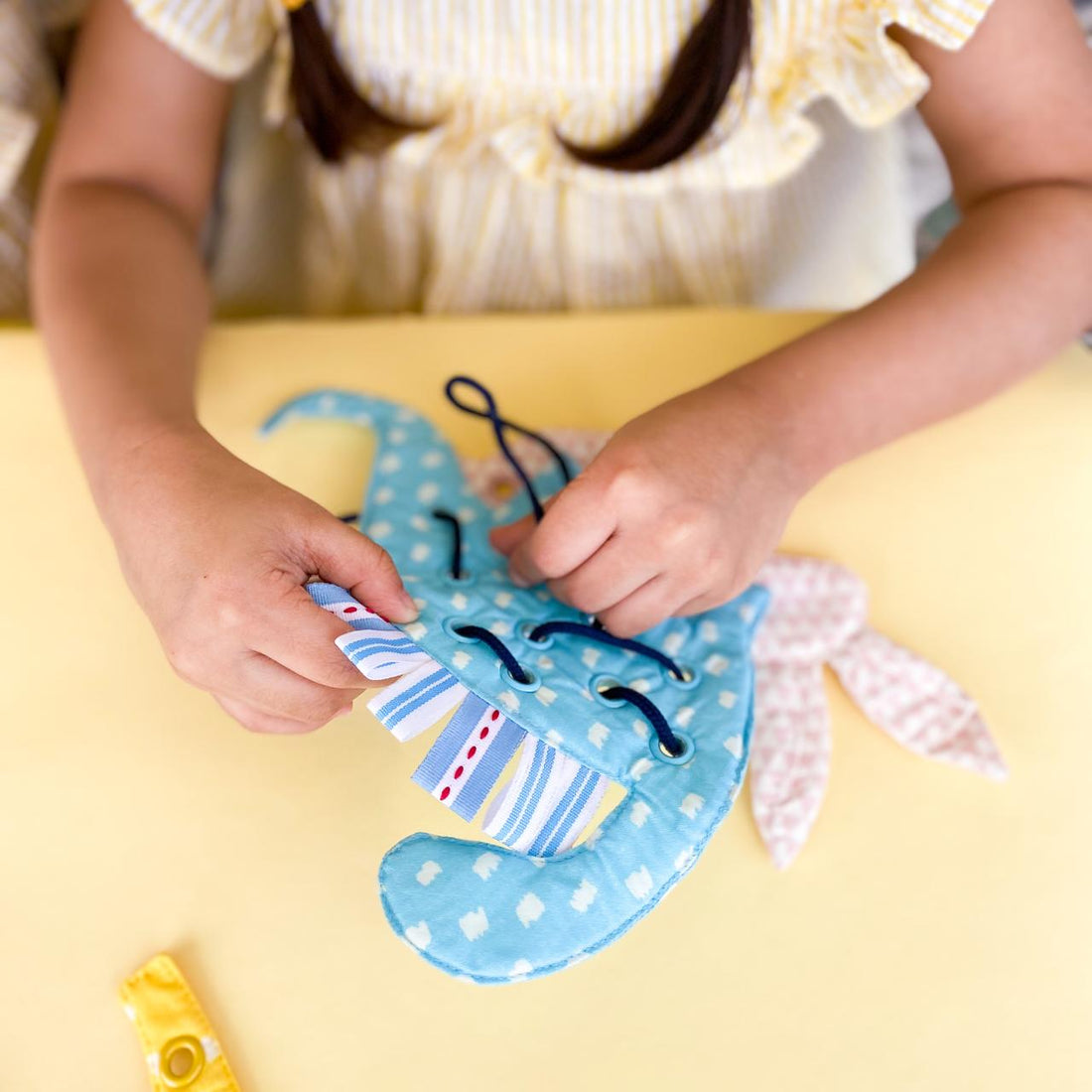
Before we officially initiate our rant about fine motor skills development, contemplate a few points stated below as a parent to a clingy tot:
- My Child refuses to pick things, letting them intact wherever they are.
- Regardless of How Hard I try, legible handwriting seems to be a dream far-fetched.
- I religiously started Baby Led Weaning at six months, but my child hardly enjoys seating.
- Despite being five years old, my child hates dressing up independently and often messes up with buttons.
Are The Above Pointers A Big "Yes"?
Most of you would end up claiming your consent to these problems. And there's nothing novel as approximately 10% of toddlers face issues with the timely development of motor skills. However, there's nothing to worry about and be baffled. All this is seemingly common, with heightened possibilities of progress with time. If you are still a novice at it and want to enhance your understanding of what are fine motor skills, read the content below.
What are Fine Motor Skills?
The small, apparent hand, arm and eye coordinated movements that allow your child to pick up things, enjoy meals on their own, have a legible writing, fastening buttons, use cutlery, and enjoy creative toys, are fine motor skills. And the compilation of small movements is followed by significant tasks such as running and jumping. All these tasks come so intrinsically in our children that we often ignore the intricately woven nervous system behind them.
Same Development, yet At a Different Pace
Only a minor section knows that gross motor skills are not just related to hand and eye movements but also an unambiguous reading and learning. Even though most of the skills in children are acquired at equalized pace, there is still diversity in the onset of some particular skills. And the same particularly happens in the development of fine motor skills. Get an insight into the time span children develop coordination and motor skills:
By 4 Months
- Intended motions with arms and Legs.
- Everyday Push-Ups from Belly.
- Bringing hands to the Mouth.
- Holding head upright without any effort.
- Rolling from tummy to the Back
By 9 Months
- Exploring the Space with holding furniture.
- Sitting up with Head Straight without any help.
- Creeping, crawling and reaching to a position to pick up things.
- Start Picking Up Food ( Introduction of BLW)
By 12 Months
- The most daunting task of sipping from sippers.
- Start walking with support or without zero assistance.
- Throwing objects and picking them up in return.
- Consideration of hands and knees position.
By 2 Years
- Playing up with a Ball and even some mind-boggling toys.
- Running and catching the loved ones around.
- Observing and demanding things loved by the most.
- Holding a thick crayon and coloring it on a drawing sheet.
By 6 Years
- Riding a bike without any support from peers.
- Jamming to the rhythm of the music.
- Using cutlery properly during meals.
- Brushing Teeth Properly without any assistance.
- Development of creative skills like swimming, playing a musical instrument and dance movements.
Some Common Motor Skill Difficulties and Reasons
There comes a phase when it becomes almost inconceivable for parents to notice the problem their child faces. Some caregivers take this on a lighter note, while others worry about trying to understand the subjective concerns. Although the children ought to be set free to grow at their pace, nevertheless, some of the below problematic areas must not be overlooked:
- Hardship using both hands at the exact time. (It is the most common problem children face.)
- Unable to fasten buttons and zip the jacket.
- Undecipherable handwriting.
- Problem during learning and reading.
- Tying Shoelaces.
Admittedly all this comes naturally, still, there are some reasons associated:
- ADHD (Attention Deficit Hyperactivity Disorder) - This developmental disorder has become quite common that often refrains the child's indulgence in tasks. Children diagnosed with ADHD have poor coordination with things over other typical children.
- Physiological Abnormality- Other than ADHD, reasons such as prematurity and developmental disabilities are responsible.
Perfect Toys to Ignite the Lost Hopes
Getting conscious about the unplanned delays is obvious when parents see competition around. It is ironic but a bitter truth that these precious godsends are being compared unknowingly. Hence, to wither away claims that define children to be problematic, there are two engaging activities for fast motor skills development:
- Aquatic Dress Up Fish- Considering the most common problem of dressing up, this toy from berrybee.in is a complete package of fastening, zipping it up and tying. While developing the finger skills and the hand strength, it helps engage your child silently in a restaurant, lift, waiting room, car rides and even home. Besides this, it builds the much-needed eye coordination and concentration, and hence this toy is a boon at such an economical price. Made from polyester, cotton and nylon, it is machine safe and is ideal for children up to four years of age.

- Animal Lacing Toy- One particular issue children with delayed motor skill development face is tying laces. Therefore, to overcome this daunting task,berrybee.in has launched the animal lacing toy that not just opens possibilities for lacing but sewing, pattern creation and tying. Easy to hold and light to carry while travelling, it engages your child and confers a relaxed time. Mrs Reema Jha, a teacher from Ranchi, Jharkhand, claimed that buying this toy from Berry Bee helped his fussy boy develop fine motor skills usually developed at five at the age of two years only.

Wrapping It Off
The rising healthcare complexities have certainly raised the bar for parents. Even a slight idea of a child being different in some way or another triggers attention in the guardian's mind. Fine motor skills development has always been a part of children's growth yet unnoticed. Now that we know every aspect related to their growth, compiling toys and accessories to develop their mind is an idea worth considering.


